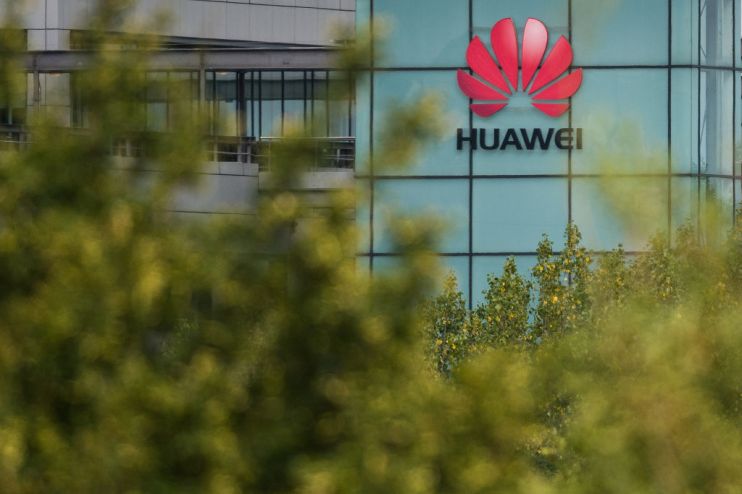The Huawei ‘U-turn’ isn’t enough to keep Britain safe

Yesterday, the UK government announced the results of its long-awaited review into Huawei’s role in our country’s 5G system.
Following months of speculation and increasingly public and political concern about the influence of China, the new plan revises the January 2020 decision giving the Chinese telecoms giant a 35 per cent stake in Britain’s network in perpetuity, and is designed to gradually remove Huawei equipment from UK infrastructure.
Opposition MPs gleefully labelled this a U-turn. In political terms, such language was apt enough — insofar as it corrects the obvious error of the former 5G decision, then U-turn or no, the new policy should be welcome.
But as usual, the devil is in the detail. What has really changed, and will it make the UK more secure?
The first change is that no new Huawei equipment will be installed in the 5G system from the start of next year. That means telecommunications companies could still buy up warehouses-full of cheap Huawei stock for five months or more, and install it at some point after the ban starts, as it would no longer count as “new”.
Second, all Huawei components will be removed from the 5G network by 2027. Leaving aside for a moment that the target date is seven years away, there is no plan to eradicate Huawei from the 3G and 4G infrastructure — including for systems used as the backbone for 5G.
Attempting to give assurance on this point, digital minister Oliver Dowden implied a degree of separation between the boundaries of the existing 3G and 4G infrastructure and the future 5G. Such a distinction is not so clear-cut in practice.
And on the issue of urgency, Dowden was repeatedly asked to explain why the proposed purge of Huawei from our system had to take so long. The rationale for this was not made sufficiently clear. British Telecom have said they could remove all Huawei equipment (3G, 4G, and 5G) in five years. The government has given them seven to remove just one third of that.
Let us not lose sight of why this is so important. Huawei equipment comes from the toolkit of an increasingly hostile and aggressive communist party-state, which daily bombards the UK with everything from open threats to covert cyber attacks. Protecting our national security by clearing out Chinese equipment and keeping it well away from all parts of our key national infrastructure must surely be a most urgent priority.
The government’s so-called U-turn makes an oil-tanker look nimble. The world will likely be a very different place in 2027 — it’s already obvious that Covid-19 is changing the course of world history. But as long as Xi Jinping is still the paramount Chinese Communist Party leader and China’s economy does not collapse, Beijing will most likely continue its global campaign to subvert, surpass and overthrow the democratic states which currently support rules-based international order.
Obviously the task of eliminating Huawei equipment entirely from our communications infrastructure is complex and costly. But as long as this equipment stays in place, there is still a risk that it could be altered or damaged remotely from China. Under the UK government’s new proposal, Huawei equipment will continue to operate in Britain (including receiving software updates sent from Shenzhen) for the next two decades. The integrity of new installations that are not entirely ring-fenced from Huawei products could be compromised.
Is this the time to tarry while enemy technology is coiled round the heart of our country’s digital system?
Finally, it is worth nothing that little or nothing was said yesterday about an equally strategic issue: Britain’s relations with the US, Canada, Australia and New Zealand, the close allies known collectively as the “Five Eyes”. Major concerns have been raised for some time (most notably by the US) about the security risk of intelligence sharing involving UK communications infrastructure as long as Huawei is part of it.
This is not only a matter of high-level intelligence exchanges, which might now have to exclude the UK, but also concerns issues such as the security of military and other personnel based in the UK.
If Britain has surrendered the security of its communications systems to a hostile superpower, including all the complex technical interconnections that will make up the coming 5G revolution, some of our oldest and closest allies will inevitably have to view us as suspect by association.
It is too soon to judge how our partners in the democratic world will react to this latest government decision. But without significant clarification and amendments, the new plan seems unlikely to satisfy many legitimate and widely-held concerns — at home and abroad — about the security risks associated with Huawei. In short: too late, and far too little.
Main image credit: Getty